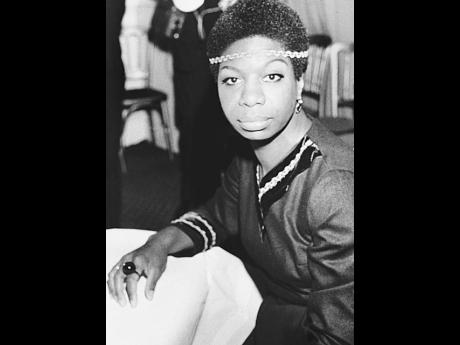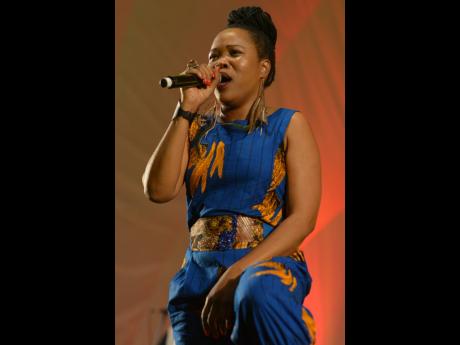Queen Ifrica captures the mood of Nina Simone on ‘Four Women’
It is not surprising that Queen Ifrica, the illustrious ‘Fyah Muma’ who chants powerfully against the abuse and exploitation of women, has chosen to cover a classic from the repertoire of the acclaimed High Priestess of Soul, Nina Simone.
A songwriter, musical arranger, and civil rights activist, Nina Simone (real name Eunice Kathleen Waymon) in 1966 released Four Women, a song which has been described as “a civil rights protest and a feminist anthem”. Queen Ifrica, the Rastafarian whose didactic sociopolitical verses and thought-provoking social media musings reverberate in real and virtual spaces, can certainly identify.
She has expertly crafted her own interpretation of Four Women on a project which is produced by Grammy Award-winning artiste and producer Stephen Marley.
“I was asked by Stephen Marley to be a part of the recording. While in Florida, I went to his studio, learned the song, recorded it, and the rest is history,” she explained casually of her newest single, which also has an accompanying music video.
However, she admitted that Nina Simone and her songs have always resounded with her, and agreeing to work with Marley on this particular project was a no-brainer. For her, it was simply another chapter in the book of her legacy, which includes the 2009 anthem Lioness on The Rise and Black Woman, released in 2017.
“As a black woman, Nina was always on the front line of resistance against inequality towards women, especially black women. That is what I continue to do as a black woman and as an artiste,” the Don’t Touch me There artiste told The Gleaner.
Each verse of Four Women is dedicated to a particular woman – a caretaker, a mixed-race daughter of a white father, a streetwalker, and a woman named Peaches – and the whole issue of colourism also rears is ugly head. The women each have varying skin tones: black, yellow, tan and brown.
“I was able to channel Nina Simone because I am connected to the four women mentioned throughout the song,” Queen Ifrica stated. And this is fiercely communicated in the music video, directed by Extreme Arts and infused with all that is regal. A behind-the-scenes photo shoot, also by Extreme Arts, adds more depth to the project.
Her version of Four Women, even after a brief listen, can be described as ‘reggae’s got a lot more soul, with a heavy topping of blues’, and Ifrica agrees, but she has one addition. “It could be described that way. I would add a little jazz to that,” was her take.
Born in Montego Bay, Ifrica is the daughter of Derrick Morgan, a major ska star who went on to become an important figure in rocksteady and early reggae. She started to pursue a real career in reggae in the mid ‘90s, and in 1999, she recorded the single Royal Love for the Flames label. However, she became much better known in the 2000s, when she recorded for various independent labels. Her singles Just My Bredrin, Randy, and Below the Waist became hits in Jamaica and across the diaspora. In 2009, Ifrica’s album Montego Bay, which included Daddy and the hit Streets Are Bloody, was released in the United States by VP Records.
Over the next several years, Ifrica stayed busy performing live and touring. In 2017, she delivered her sophomore album, Climb, which topped the Billboard Reggae Albums Chart.


